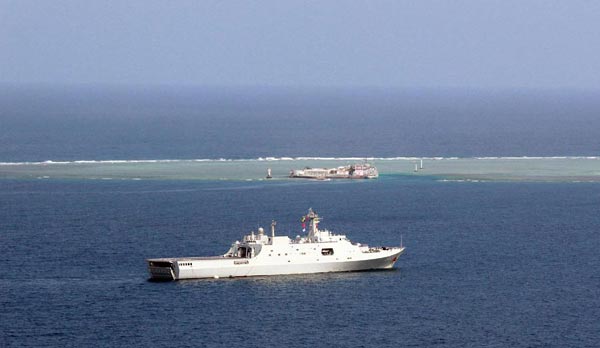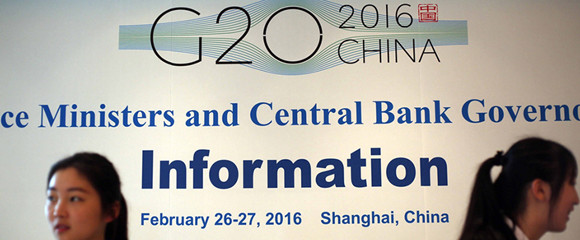Manila 'may change its stance on sea dispute'
Updated: 2016-05-10 02:23
By Mo Jingxi(China Daily)
|
|||||||||
 |
|
A formation of the Nanhai Fleet of China's Navy on Saturday finished a three-day patrol of the Nansha islands in the South China Sea. [Photo/Xinhua] |
The next government in the Philippines might change its policy and exercise more restraint over the South China Sea, according to Chinese observers.
The observers, who said Manila's current policy had hurt both its own interests and regional security, were commenting as the Philippines presidential election took place on Monday.
The final result is expected on May 25, and the new president will serve a six-year term.
But the observers also warned that meddling by the United States in relations between China and the Philippines will cast a shadow over the newly elected administration's decision-making.
Unlike outgoing Philippine President Benigno Aquino, who adopted a confrontational policy toward China, all three front-runners in the poll have said they are willing to seek diplomatic solutions to solving the country's maritime dispute with Beijing.
Foreign Ministry spokesman Hong Lei said last week that China hopes the new Philippine government can "properly handle the South China Sea dispute" and "improve China-Philippine relations with practical action".
He was commenting after Philippine presidential candidate Rodrigo Duterte said he would, if elected, hold bilateral talks with China to resolve the dispute if current multilateral discussions don't bear fruit within two years.
Xu Liping, a senior researcher of Southeast Asian studies at the Chinese Academy of Social Sciences, said, "The Philippine government will adjust its policy on the South China Sea issue no matter which candidate is elected, because the policy of the Aquino administration runs counter to the country's interests and threatens regional security."
Xu said Manila could benefit by returning to the negotiating table to solve the maritime dispute.
For example, it could undertake joint sea explorations with China or join the Beijing-led Belt and Road Initiative.
Jia Duqiang, who also researches Southeast Asian studies at the academy, said, "If changes do happen, it is possible that the new president will exercise restraint."
Chen Qinghong, a researcher of South China Sea issues at the China Institutes of Contemporary International Relations, said "stirring up" of tensions by the United States in relations between China and the Philippines will limit the new administration's room to maneuver on the South China Sea issue.
mojingxi@chinadaily.com.cn
Related Stories
Financial Times published a signed article by Ambassador Liu Xiaoming entitled "Who is really behind the tensions in the South China Sea?" 2016-05-10 00:39
Stop meddling in the South China Sea 2016-05-08 14:18
Illegal fishing targeted in South China Sea 2016-05-06 08:30
Ambassador demands stop meddling in South China Sea 2016-05-05 07:47
The Times published a signed article by Ambassador Liu Xiaoming entitled "Stop meddling in the South China Sea" 2016-05-05 05:05
Today's Top News
EU anti-dumping moves may damage ties with China
Search widens for leading overseas professionals
60% of career women say no to second child: report
Testing times
Big hopes as China hosts the G20
Inspectors to cover all of military
Britons embrace 'Super Thursday' elections
Campaign spreads Chinese cooking in the UK
Hot Topics
Lunar probe , China growth forecasts, Emission rules get tougher, China seen through 'colored lens', International board,
Editor's Picks

|

|

|

|

|

|







